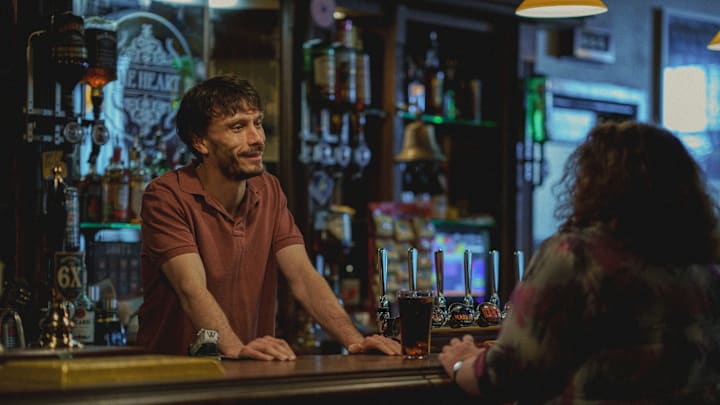Baby Reindeer is the talk of the internet right now and currently sitting at the no. 1 spot on Netflix's Top 10 list of English-Language television thanks to its riveting, unflinching, and often uncomfortable depiction of sexual abuse and the trauma that comes with being a survivor.
Scottish comedian, actor, and writer Richard Gadd is at the center of this heartbreaking, but brilliant television series based on his real life story. Previously, Gadd performed it as an autobiographical one-man show that won awards at the Edinburgh Festival Fringe. Now he's brought his saga to television in a triumphant and brutally honest portrait of his life, one that is likely to generate awards attention when Emmy season rolls around (or should, at least).
Spoilers ahead for the Baby Reindeer finale/ending
For a show that deals with such harrowing and complex scenes as this one does, it's understandable that there has been a lot of discourse and analysis about the series, particularly its final episode, which ends in a rather dark place. Baby Reindeer addresses something about abuse that is rarely addressed in a television setting—the difficulty of leaving your abuser behind.

If you've never been in an abusive situation before, it can be easy to think, "Well, why didn't they just leave?" Or, in the case of Donny Dunn in Baby Reindeer, many were baffled as to why he would return to the home of his abuser, Darrien (played by Tom Goodman-Hill), the man who groomed and assaulted Donny multiple times. Or why he would feel bad for his stalker, Martha (Jessica Gunning), to the point of becoming almost obsessive about her in the end.
But I think Baby Reindeer also lays out the reasoning pretty well. Gadd himself discussed his choices for crafting the ending while talking to GQ. He doesn't see the ending as "cynical," but rather an important way to showcase "an element of abuse that hadn't been seen on television before, which is, unfortunately, the deeply entrenched, negative, psychological effects of attachment you can sometimes have with your abuser."
Gadd calls the specific scene where Donny confronts Darrien, "almost the most truthful scene of the entire show."
Right after he visits Darrien at his apartment, Donny has something of a panic attack outside. What did he hope to gain from seeing Darrien face-to-face? Maybe a sense of catharsis or sudden understanding for why things happened the way they did. Or more simply, he might feel like he still needs something from Darrien, whether thats closure or something else.
"What abuse does is it creates psychological damage as well as physical damage… Abuse leaves an imprint. Especially abuse like this where it’s repeated with promises. There’s a pattern where a lot of people who have been abused feel like they need their abusers. "Richard Gadd to GQ
Another pivotal scene during the finale shows Donny's ex-girlfriend-turned-friend Keeley (Shalom Brune-Franklin) visiting him at his flat and seeing the disturbing police board-like wall of papers and documents all about Martha. Donny has been compiling everything he has on her to try and understand why Martha acts the way she does, becoming almost as obsessive as Martha was, just in a different way.

He's formed a dependency on her and the reprieve she offers him from his own sexual trauma. Martha did awful things to Donny and ruined his life, but she also gave him an outlet. An escape from dealing with what Darrien did to him. We also have to remember that by the time the finale rolls around, Donny really doesn't have anyone else in his life.
Things didn't work out between him and Teri (Nava Mau) and he even sees her moving on, to a new relationship. In some ways, even Martha moves on by the end of the show because she receives a prison sentence after getting Donny's phone number and leaving threatening voicemails. Donny is truly left alone, with nothing but Martha's seemingly endless trove of voicemails to keep him company.
Thus we end up in the final scene of the series, one that mirrors the beginning, where Donny finds himself receiving a free drink from a bartender who takes pity on him. Donny suddenly realizes that he could become just like Martha. That it wouldn't be so hard to channel all of his emotion and need for companionship onto this unsuspecting barkeep who has no idea what he's just done by waiving the drink fee.
Cyclical abuse is a very real thing. Donny is at a crossroads in his life at that moment and it's further hammered home by the last voicemail we hear from Martha, the one explaining why she nicknamed Donny "baby reindeer." Because he reminded her of a plush toy she had as a kid that made her feel safe when her home was far from it.

Martha came from a dark past and so does Donny. Instead of dealing with her pain, Martha stalked other people to escape her own life and in some ways, that's what Donny has started doing too, through Martha and his twisted dynamic and later, her voicemails.
Obviously, as a piece of art, Baby Reindeer leaves a lot open to viewer interpretation in the end. People are going to have their own takeaways from what happens to Donny and where we leave him in those final moments. I commend Gadd for taking a risk and creating an ending that might not be palatable to some. I also agree that the ending isn't cynical as much as it is thought-provoking.
Donny is left at a very vulnerable moment in his life, perhaps the most vulnerable he's been in since the start. Now he's alone and left to confront what happened to him, without the drama of a stalker to fall back on. We leave him on the verge of a reckoning, one he'll have to address head-on.
